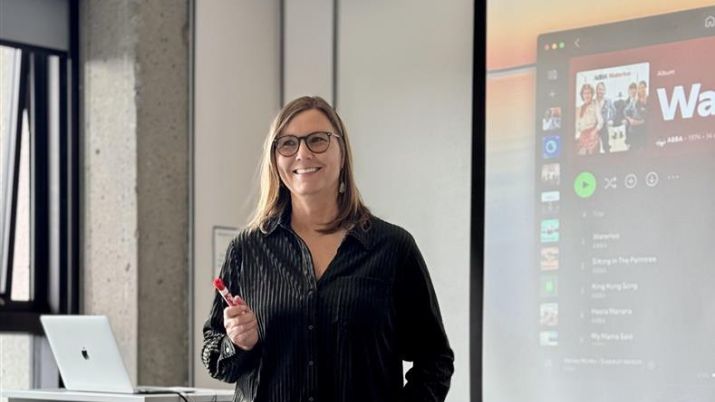

The Department of Central, Eastern and Northern European Studies has named their 2024 recipients of the CENES Excellence in Mentorship Award.
It is with great pride and joy that the Department of Central, Eastern and Northern European Studies (CENES) celebrates our colleagues Olena Morozova and Dante Prado as deserving recipients of this year’s CENES Outstanding Mentorship Award.
In it’s third year of being awarded, the CENES Excellence in Mentorship Award was conferred during the first ever ‘Cenies’, where a full house gathered to celebrate various CENES achievements of both faculty and students alike.
Testimonies from their nominators further share their willingness to create a vibrant and welcoming community.
Olena Morozova
“Olena’s formative impact on UBC’s Slavic studies community is most gratefully acknowledged by the leadership of our Ukrainian Student Union (USU). Founded in the immediate aftermath of Russia’s full-scale attack on Ukraine, this association went on to be honored as the most successful new AMS club of the 2022/23 academic year, not least because it was selected to host the 2023 meeting of Canada’s Ukrainian Student Unions (SUSK). When Olena appeared at the SUSK congress, it was the culmination of a year in which she mentored the students of our USU in cultural, political and strategic questions as they built a remarkable organization. Most importantly however, considering that many of the association’s students are directly or indirectly affected by Russia’s war against Ukraine, our Ukrainian and Ukrainian-heritage students immensely appreciate Olena for always lending an open ear and an open heart.”
Dante Prado
“Dante’s activity [has been noteworthy] as Graduate Representative of the GSA’s Committee on Equity, Racial Justice and Indigenous Partnerships, where he has spearheaded workshops on facilitating scholarly publication efforts by graduate students, as well as “Incorporating Equity, Diversity, Inclusion (EDI), and Diverse Ways of Knowing in Grant Writing for German Studies Fields.” Secondly, [we note] his initiative of teaching a free online course on German modernism at the University of Buenos Aires (with 60+ enrolled). Such gestures are exemplary: they can effectively change the field, and demonstrate how scholarship can indeed be a communal engagement beyond institutional boundaries.”


